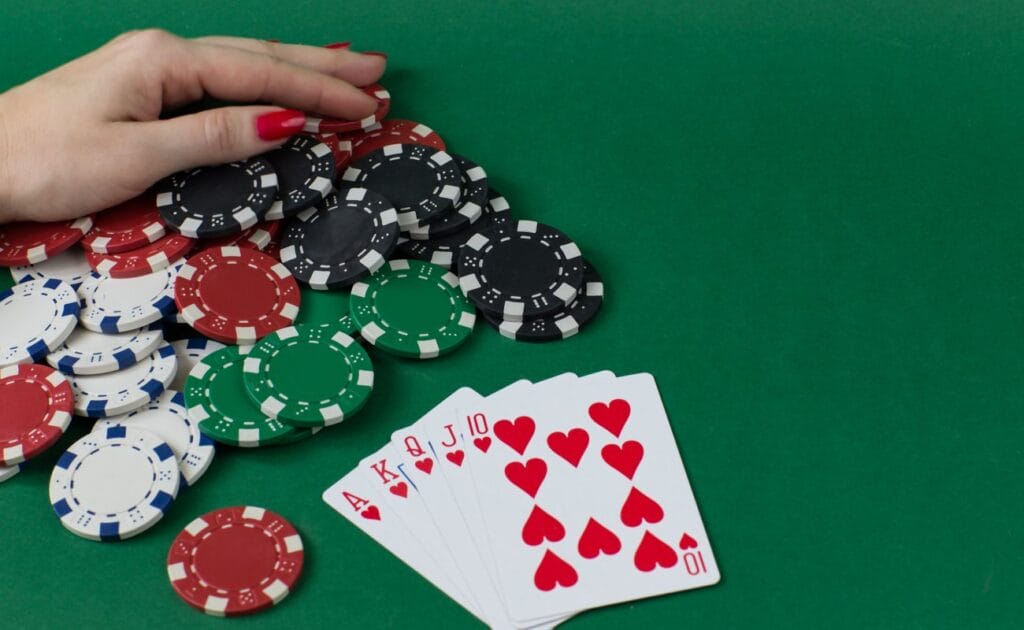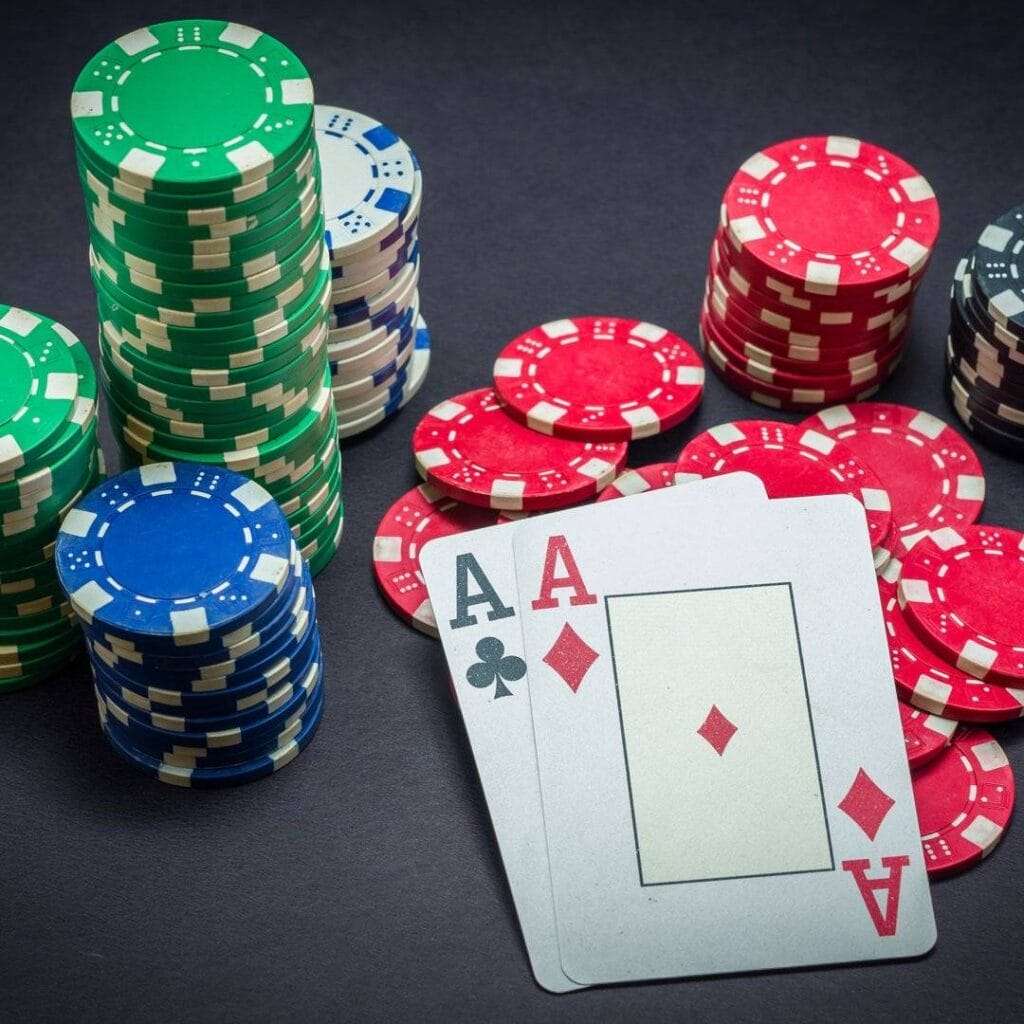
Unlike most casino games, there’s a lot of skill involved in poker. To be successful, you can’t simply rely on luck and hope for the best. You have to understand the rules, know how to read your opponents, and, most importantly, use the right strategy.
If you’re a complete beginner, there’s a lot to take in at first. However, if you’re patient and put in the work, you’ll see much better results. In this article, you’ll not only learn the importance of online poker strategy but some key ideas to work into your game.
Poker is a Game of Skill
Luck determines the outcome of most online casino games. When you play slots, for instance, you have no way to influence the outcome of the game at all. You simply spin the reels and hope that the right symbols appear to award you a payout.
Some games, like blackjack, give players a little more control over the outcome. You’re still relying on short-term luck to determine whether you win or lose in a session. But by understanding the perfect strategy, you can reduce the house edge almost completely. Learn to count cards, and you can even turn a profit in the long run.
However, no casino game comes close to poker in terms of skill and strategy. Luck still plays a role, of course. After all, there’s no way to change your hole cards or whether or not you hit that draw. But your decisions are based on reading opponents, bravery, understanding psychology, and mastering probabilities.
Play your cards right, and your chances of winning increase significantly. This makes Texas Hold’em poker a particularly fascinating game to study and learn.
Top Poker Players
Whenever you sit at a table, whether it’s in a bricks-and-mortar casino or online, you’re playing against other people. This is another key difference between poker and other casino games, where you take on the house.
Casinos and online poker sites do take a small percentage of the pot in rake. But any player at the table has a chance of winning the rest. This means that, in order to win long-term, you have to be more knowledgeable than the others.
As proof of the fact that poker is a game of skill, you only need to look at major tournaments. Year after year, the best players show up at the final tables despite playing for the highest of stakes. Even if they have bad luck occasionally, their skills set them apart, allowing them to rise to the top more often than not.
Best Poker Strategies for Beginners

As a complete beginner to the game, you’re going to find it difficult at first. Even if you already have a basic understanding of how to play poker, it’s still a challenge. It will be a while before you can graduate to advanced multi-table tournament (MTT) strategy or complex concepts such as GTO. However, that doesn’t mean you can’t learn and have fun while you’re at it.
As you practice, you’ll slowly improve at reading the board, figuring out your opponents, and understanding hand ranges. All of this comes with time, but there are some simple strategies to help you along the way.
Keep It Tight
Playing tight means taking fewer risks. For instance, folding unless you have a premium hand pre-flop. For some, this style of play is seen as boring. However, it’s essential when you’re first starting out.
You’ll gain a better understanding of the game by playing longer sessions. To do that, you’ll need to avoid losing money by playing risky hands when you don’t yet know what you’re doing.
Just because you folded doesn’t mean you can’t observe your opponents and learn. Being at the table is all part of the process. So, stick to stronger hands when starting out, like pocket pairs and high-value suited connectors. Ditch the rest.
Calculate Outs and Equity
In poker, “outs” are the cards you need to complete your hand. Before you bet, make sure you properly calculate how many you have. For instance, with an open-ended straight draw, you have eight cards to make the hand.
Once you know how many outs you have, use the rules of two and four to approximate the percentage chance of winning the hand. On the flop, multiply the number of outs by four to roughly calculate your equity. Multiply by two on the turn.
For example, if you flopped three outs, the odds of your hand improving on either the turn or the river would be +733. If you still have three outs on the turn, your odds of being able to hit are +1,567.
Always Consider Position
Aside from your actual hand, position is the most important thing to consider in poker. With each hand, the dealer button and blinds move around the table, meaning your relative position constantly changes. In online poker tournaments, this is even more important, as the size of the blinds increases with time.
Players in early position are at a disadvantage since you can see how they act before making your own decision. When you’re in late position, look to take advantage of this as much as possible.
Observe Your Opponents
Texas Hold’em games aren’t just about which cards you have. You also need to be able to read your opponents over a range of hands. This is hard to do at first, but as you play more, you’ll improve. Learn to spot the three personalities of poker and how they behave.
Look for patterns in how people bet and which types of hands they play. Even if you’re out of the hand, you should still be watching and learning. You can’t study body language when playing online. But it’s still possible to observe bet sizing and how quickly people act.
Maximize Your Strong Hands
Even though you’re a beginner and playing tight, you’ll still want to make the most of strong hands. A lot of newcomers play it too safe, avoiding big bets or slow playing their hand. While that might help to draw other players in, it doesn’t help to build the pot.
If you have a premium hand, it’s important to bet for value and grow the pot. Sure, your opponents will often fold in the face of a large wager. However, that means they didn’t have a hand and would have folded anyway. Don’t give them the chance to outdraw you for free. Make them pay if they want to try.
Developing Your Poker Skills
You can spend hours studying poker and reading about strategies, but there’s no substitute for experience. The best way to learn is by playing real money poker. Register with Borgata Online today and put these tips into practice. However, make sure you play responsibly and don’t risk more than you can afford to lose.
